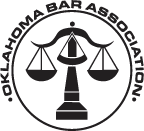The 21st Century Cures Act was signed into law under the Obama administration on December 13, 2016. The Act allowed for a 6-month preparation period where compliance was encouraged, but not required, beginning on the publication date, May 1, 2020. Six months after publication, on November 2, 2020, compliance with the Act will be required. The Office of the National Coordinator for Health Information Technology (ONC) released a “Final Rule,” which implements certain provisions of the Act including patient access to electronic health information. The Final Rule is effective beginning June 30, 2020.
The Cures Act was designed to accelerate the development of medical products such as drugs, biological products, and other medical devices in an effort to provide more efficient patient care. The Act is also intended to provide complete transparency to patients through the use of modern technology. Clinical notes will be made available to patients through an online portal claiming to provide both easier access to health information as well as increased communication between providers and patients. This allows for patients to access their medical records more easily without navigating through health information management employees. The ultimate goal is to allow patients to access their medical records electronically at no additional cost while also allowing providers to utilize IT products of their choosing to better care for their patients.
While some of us may be used to already receiving our medical notes immediately after an appointment either through printed records or an electronic portal, the Cures Act mandates that all records, with the below exceptions, will be made immediately available to any patient electronically. There may be exceptions to this Act in which medical records compiled in anticipation of litigation, like in the case of a workers’ compensation matter, would not be made immediately available through this electronic portal. An injured worker’s medical records would still be available to them, but they would have to go through the correct channels with the treating physician’s office to receive the records.
The Act specifically addresses the concern for “information blocking.” That is, the failure to share certain medical notes and other information through an online portal. Information blocking is strictly prohibited under the Act.
There are eight exceptions in which certain clinical notes may be blocked from a patient; however, information compiled in anticipation of, or for use in, civil, criminal, or administrative actions or proceedings do not fall under the definition of electronic health information to begin with. The initial proposed terminology for electronic health information left broad interpretations as to the scope of data that a Health IT Module would be required to provide. The definition was amended to mean electronic protected health information (ePHI) as the term is defined in HIPAA and to the extent that ePHI would be included in a designated record set. This requirement applies regardless of whether the records are maintained or used by or for a covered entity and does not include psychotherapy notes or information compiled in reasonable anticipation of litigation.
Workers’ compensation claims as well as general liability claims may not be significantly impacted under the Final Rule of the Act. This is because information compiled in anticipation of litigation does not fall under the amended definition of electronic health information. The Courts may determine these treatment records in workers’ compensation claims are done in the normal course of business in treating the injured worker rather than in anticipation of litigation. It is possible that the Courts will conclude that medical records in workers’ compensation claims are completed in anticipation of an administrative proceeding. If so, they would likely not be considered electronic health information under the amended definition and would not be subject to the Final Rule of the Act.
It is unclear if treatment records in general liability cases will have the same analysis as those records under workers’ compensation. Many times doctors providing services to patients would not realize that the injury may be the subject of civil litigation in the future. Therefore, there would be a question on whether those treatment records would be compiled in anticipation of litigation.
Additionally, the eight exceptions in which certain clinical notes may be blocked from a patient are as follows:
Preventing Harm Exception
Information may be blocked if it is reasonable and necessary to prevent harm to a patient or another person. In such situation, the provider must have a reasonable belief that withholding information will substantially reduce a risk of harm and must be able to state a type of risk, type of harm, and implementation basis.
Privacy Exception
Information may be blocked to protect an individual’s privacy. A provider’s privacy-protection practice must meet one of the following sub-categories.
- If a provider is required by law to satisfy a precondition, such as a patient consent or authorization, prior to releasing electronic health information, the provider may choose not to provide such information if the precondition is not satisfied.
- If the actor is a health IT developer that is not required to comply with HIPAA, the developer may choose to interfere with the access, exchange, or use of electronic health information for privacy protection purposes.
- An IT developer or provider may choose not to provide access, exchange, or use of electronic health information if doing so fulfills an individual’s request not to share such information.
- For other reasons provided by law with respect to the HIPAA Privacy Rule.
Security Exception
Information may be blocked to protect the security of such electronic information, provided certain conditions are met. For this exception to apply, the practice must be either directly related to safeguarding the availability, integrity, or confidentiality of such electronic information; tailored to specific security risks; and, implemented in a consistent and non-discriminatory manner. The practice must also either implement a qualifying organizational security policy or a qualifying security determination.
Infeasibility Exception
Information may be blocked if an IT developer or provider does not fulfill a request to access, exchange, or use electronic health information because it is not feasible to do so. This exception specifically takes into account uncontrollable events, such as a public health emergency, or in instances where a provider is unable to unambiguously segment the requested electronic information. There must be documentation of non-discriminatory infeasibility.
Health IT Performance Exception
Information may be blocked in order for an IT developer or provider to take reasonable and necessary measures to ensure overall IT performance.
Content and Manner Exception
It is not information blocking for an IT developer or provider to limit the content of its responses to a request to access, exchange, or use electronic health information or the manner in which it fulfills a request to access, exchange, or use such information, provided certain conditions are met. In this case, a provider may need to fulfill a request in an alternative manner.
Fees Exception
It is not information blocking for a provider to charge reasonable fees to access, exchange, or use electronic health information.
Licensing Exception
It is not information blocking for a provider to license certain software to access, exchange, or use electronic health information and charge reasonable royalties to earn returns on their technological investments.
If information is blocked, there must be a clearly documented reason for such actions. Inappropriate information blocking can lead to fines of up to $1 million per violation depending on the nature and extent of the violation and the harm that resulted from such actions.
If you have questions about The 21st Century Cures Act and how it may affect your case, please contact any of our Workers’ Compensation Attorneys
Disclaimer and warning: This information was published by McAnany, Van Cleave & Phillips, P.A., and is to be used only for general informational purposes and should not be construed as legal advice or legal opinion on any specific facts or circumstances. This is not inclusive of all exceptions and requirements which may apply to any individual claim. It is imperative to promptly obtain legal advice to determine the rights, obligations and options of a specific situation.







